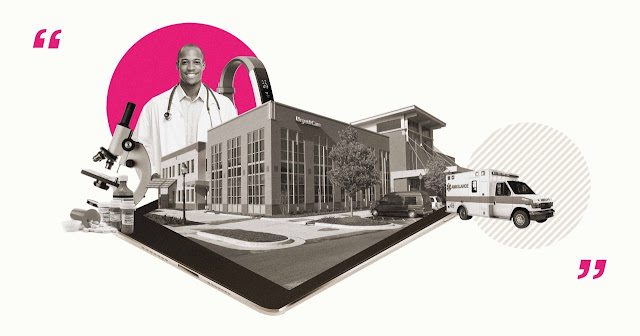Efficiency Strategies for Optimizing Hospital Software and Achieving Superior Outcomes
Introduction:
In the fast-paced world of healthcare, efficiency is a key driver in delivering high-quality patient care and streamlining hospital operations. An integral component in achieving efficiency is the effective management of hospital software systems. However, not all software solutions are created equal, and healthcare facilities often face challenges that hinder the optimal performance of their software. In this article, we will delve into these challenges and provide actionable strategies to unlock the full potential of hospital software, enabling healthcare organizations to maximize efficiency and drive superior outcomes.
Challenges with Inefficient Hospital Software
- Lack of Customization: Generic software solutions often fail to address the unique workflows, protocols, and specific requirements of each hospital. This lack of customization limits the software's ability to optimize processes and adapt to evolving needs.
- Insufficient Integration with Existing Systems: If the hospital software doesn't integrate seamlessly with other crucial systems such as electronic health records (EHRs), billing systems, or inventory management tools, it can result in data discrepancies, increased manual work, and reduced productivity.
- Poor User Interface and Experience: Complex and intuitive user interfaces hinder staff productivity and increase training time. If the hospital software lacks an intuitive design, or navigation, or has a steep learning curve, it can lead to resistance and limited utilization.
- Limited Scalability and Flexibility: Hospital software needs to keep pace with a hospital's growth and changing requirements. A lack of scalability and flexibility can impede expansion efforts, hinder the addition of new departments, or adapt to evolving regulations.
- Inadequate Reporting and Analytics Capabilities: Data-driven decision-making is vital for effective hospital management. Without robust reporting and analytics capabilities, hospitals struggle to gain insights, identify improvement areas, and make informed strategic decisions.
Strategies to Optimize Hospital Software Efficiency
- Overcoming the Lack of Customization: Prioritize customization by selecting hospital management software that offers flexibility. Collaborate with the software provider to tailor the system to your specific needs, ensuring seamless integration of protocols and workflows. Customization aligns the software with established practices, optimizing processes and improving efficiency.
- Addressing Insufficient Integration with Existing Systems: Give priority to software solutions with strong integration capabilities. Look for a hospital database management system that seamlessly integrates with key systems such as EHRs, billing systems, and inventory management tools. Implementing a well-integrated ecosystem eliminates data discrepancies, reduces manual work, and streamlines operations.
- Improving User Interface and Experience: Select software with a user-friendly interface, intuitive design, and simplified navigation. Provide comprehensive training resources, user manuals, and responsive customer support to enhance staff productivity and adoption. Investing in staff training and user-friendly experiences reduces resistance, improves engagement, and maximizes software utilization.
- Ensuring Scalability and Flexibility: Choose software that can scale with your hospital's growth. Opt for solutions capable of accommodating increased patient volumes, additional departments, and changing regulatory requirements. Partner with a software provider that regularly updates and enhances its product to ensure adaptability to future needs. Scalable software solutions allow seamless expansion, effective resource allocation, and competitive advantage.
- Enhancing Reporting and Analytics Capabilities: Prioritize software solutions with robust reporting and analytics features. Look for customizable dashboards, advanced reporting options, and comprehensive analytics capabilities. Leveraging accurate data and actionable insights empowers the hospital team to identify improvement areas, make data-driven decisions, and drive process improvements for better performance.
Conclusion
Efficient hospital software is essential for optimal hospital management. By addressing the challenges mentioned above and implementing the strategies outlined in this article, hospitals can optimize the efficiency of their software. Investing in the right software solution tailored to specific needs streamlines operations to optimize patient care, and ensures the success of the hospital in providing high-quality healthcare services.




Comments
Post a Comment